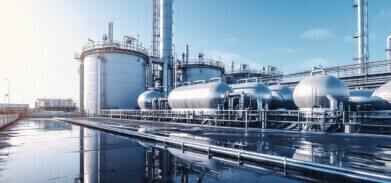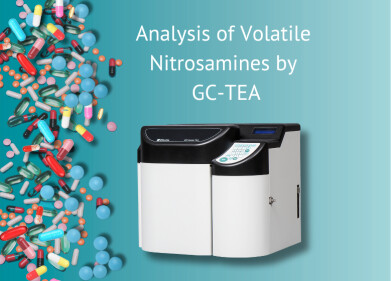Gas chromatography
Tackling Hydrogen Fuel Impurity and the Analytical Techniques currently Leading the Way
Oct 25 2023
Hydrogen has long been touted as a clean and sustainable energy carrier with the potential to revolutionise our energy landscape. Its combustion produces only water vapour as a byproduct, making it an attractive option for reducing greenhouse gas emissions and combating climate change. However, the purity of hydrogen fuel is paramount to ensure its efficiency, safety, and environmental benefits. In this piece, we will explore the issue of hydrogen fuel impurity and the vital techniques used to analyse and address this challenge.
Hydrogen fuel impurities can arise from various sources, including production, storage, and transportation processes. These impurities can be as benign as trace amounts of water vapour or as detrimental as contaminants like sulphur compounds, carbon monoxide, and hydrocarbons. Even minute impurity levels can have a profound impact on the performance of fuel cells and other hydrogen-based technologies, potentially leading to reduced efficiency and increased maintenance costs.
To maintain the integrity of hydrogen fuel, rigorous analysis is crucial. Several advanced techniques are employed to detect and quantify impurities in hydrogen gas:
Gas Chromatography: Gas chromatography is a widely used technique for separating and analysing components in a gas mixture. It can accurately identify and quantify impurities at very low concentrations, making it essential for quality control during hydrogen production and purification processes.
Mass Spectrometry: Mass spectrometry allows for the precise determination of the molecular composition of hydrogen gas samples. It can identify even trace impurities and their concentrations by measuring the mass-to-charge ratio of ions generated from the sample.
Fourier-Transform Infrared Spectroscopy (FTIR): FTIR spectroscopy is a non-destructive technique that can identify impurities by measuring their absorption of infrared radiation. This method is particularly useful for detecting water vapour and hydrocarbon impurities.
Gas Sensors: Advanced gas sensors, such as solid-state sensors and metal-oxide sensors, are employed for real-time monitoring of impurities in hydrogen storage and transportation systems. These sensors are critical for ensuring safety and preventing equipment damage.
Nuclear Magnetic Resonance (NMR) Spectroscopy: NMR spectroscopy is a powerful analytical tool that can provide detailed structural information about impurities in hydrogen gas. It is especially useful for characterizing complex hydrocarbon impurities.
The development of these analytical techniques has enabled the hydrogen industry to monitor and control impurities effectively. However, ongoing research and innovation are necessary to improve sensitivity, reduce detection limits, and make these techniques more cost-effective.
In conclusion, the purity of hydrogen fuel is a vital factor in realising its potential as a clean and sustainable energy source. Analytical techniques like gas chromatography, mass spectrometry, FTIR spectroscopy, gas sensors, and NMR spectroscopy play a pivotal role in ensuring the quality and safety of hydrogen fuel throughout its lifecycle.
More information online
Events
Apr 22 2025 Kintex, South Korea
Analytica Anacon India & IndiaLabExpo
Apr 23 2025 Mumbai, India
Apr 27 2025 Portland, OR, USA
May 11 2025 Vienna, Austria
May 18 2025 Tempe. AZ, USA

.jpg)












